Discover Off Panel: A Comics Interview Podcast
Off Panel: A Comics Interview Podcast

Off Panel: A Comics Interview Podcast
Author: SKTCHD
Subscribed: 856Played: 24,918Subscribe
Share
Description
A weekly comics interview podcast hosted by David Harper of SKTCHD that gets the story behind the stories and creators we love, as well as the broader comic book industry.
Website: SKTCHD.com
Patreon: Patreon.com/OffPanel
Twitter & Instagram: @slicedfriedgold/@SKTCHDcomic
Email: david@sktchd.com
Website: SKTCHD.com
Patreon: Patreon.com/OffPanel
Twitter & Instagram: @slicedfriedgold/@SKTCHDcomic
Email: david@sktchd.com
536 Episodes
Reverse
Recorded live at New York Comic Con, artists Hayden Sherman, Rachael Stott, and Russell Dauterman and cartoonist Trung Le Nguyen joined the podcast to talk about why they love comics, with each happening in individual segments. Up first, Sherman (1:22) discusses what fuels their love, controlling the read, what unlocked comics, artist's artists, where influences come from, how making comics impacts reading them, and more. Then Stott (17:25) joins to talk about early loves in comics, finding the unexpected, the impact of the individual, her relationship with the medium, smooth comics, and more. Dauterman (34:35) follows to discuss his love of comics, the appeal of the new, what's changed for him as a reader, looking to the past, what keeps him excited about comics, and more. Lastly, Nguyen (51:29) discusses the universality of images, accessibility, comics DNA, how making comics changed things, the process of comics, and more.
DC Executive Editor Chris Conroy, who works on the Absolute, Black Label, and Vertigo lines at the publisher, joins the podcast to talk about the newly returned Vertigo Comics line. Conroy discusses his Vertigo background, how it changed his reading habits, what led to Vertigo's return, adding clarity to how things work, the evergreen side of DC, the team behind Vertigo, its strategy to creative teams, how they built the line, its aesthetic, balancing the future and the past, the gap between announcements, the line's size, what he wants the line to mean, and more.
Artist Doc Shaner joins the podcast to talk about his life and career in comics. Shaner discusses working from home, his schedule, the impact of comic strips, wanting to be a cartoonist, Buddy Cops, showing a different side of yourself, getting into comics themselves, his music brain, drawing for yourself, developing your style, Comic Twart, which project he learned the most from, working with friends, New Champion of Shazam, the Strange Adventures experience, being the bright and shiny guy, how he works, video games, being off the stands, holding onto joy, and more.
Podcasters Badr Milligan (The Short Box Podcast) and Chris Hacker (The Oblivion Bar podcast) join the show to talk about the comic podcasting world and our upcoming panel at NYCC before we fantasy draft seven hyperspecific things we love about comics. Milligan and Hacker discuss how podcasting has ruined our brains, podcast living, our upcoming panel at NYCC, and more, before we fantasy draft hyperspecific things we love about comics, including self-adhesive bags and boards, a special Marvel relationship, superhero comics that approach the line of stupid, seeing art lines in writing, Marvel Treasury Editions, Wednesday Comics' format, and more, before a pair of guest judges come on to help declare a winner.
David Brothers and Nick Dragotta join the show to talk about their collaboration on the upcoming Good Devils: Don't Play Fair with Evil. Brothers and Dragotta discuss the FOC experience, promoting comics, how they met, the Creators for Creators grant, how David started writing comics, why they wanted to work together, helping others, the influences of Good Devils, how they work together, how opportunities shaped the story, why they wanted to bring these stories to print, Ghost Cage, why Absolute Batman works, what gets them excited about comics, and more.
Cartoonist John Allison joins the show to talk about where he's at right now in his comics career. Allison discusses finding things for himself, managing freelance living, how he's feeling about comics and the industry, where he fits, being an influencer, going the graphic novel route, how he figures out which projects to take on, writing vs. writing and drawing, how his reads impact his work, Hirayasumi, the types of projects he prefers, Kickstarter, what's next for him, the power of threes, what brings him joy in comics, a TV recommendation, Formula 1 takes, and more.
Cartoonist Ngozi Ukazu joins the show to talk about her upcoming graphic novels, Flip from First Second and Orion at DC Comics. Ukazu discusses book tour living, finding time for yourself, figuring out next steps, growing as a cartoonist, managing your workload, writing for others, the importance of having creative work outside comics, Flip's origins, autobiographical challenges, the body swap at the core of it, different types of creating, working with DC, becoming a Jack Kirby acolyte, why Orion was the right follow up, young adult graphic novels, knowing who you are, WNBA takes, and more.
Writer Brian K. Vaughan joins the show to talk about his work on comics like Saga and the upcoming Spectators, both of which are at Image Comics. Vaughan discusses the state of the world's impact on his writing, navigating his own emotions, how lasting relationships change collaborations, how much of his world is comics, Spectators' evolving covers, the approach to Spectators, writing a graphic novel, the book's origins, Niko Henrichon's art, how they figured things out, his predictive powers, risky approaches, the Exploding Giraffe community, where Saga is, the evolution of Fiona Staples, finding new readers, when he knew writing would work as a job, and more.
Comics critic Oliver Sava joins the show for the eighth annual Superhero State of the Union, as we dive deep into worlds of DC, Marvel, and beyond. Sava and I discuss our overall takes on superhero comics, corporate synergy, what's leading to DC's success, editorial vision, art as proof of concept, the Absolute line, hero families, Big Two digest editions, the DC/Marvel crossovers, where Marvel is, the lack of energy in the line, the current Fantastic Four book, saying nice things about Marvel, how we would fix Marvel, superhero comics outside the Big Two, and more.
Writer Ed Brubaker joins the show to talk about Criminal the show and the comic, particularly the latter and its new graphic novel release The Knives. Brubaker discusses showrunning the Criminal show, getting back to his roots, surprises from the experience, having two versions of Criminal in his head, adapting his own work, how present he is in The Knives, why they returned to Criminal, the different narratives in the book, the nature of its characters, the cast's journeys, the connection his comics have to his life, working with Sean Phillips, how making comics feels, how much the comic space has evolved, a new Criminal single issue, emphasizing the back catalog, finding new readers, and more.
Cartoonist Jesse Lonergan joins the show to talk about his current mix of projects and his just released graphic novel, DROME. Lonergan discusses managing workflow, the roots of DROME, pushing your approach, the book's title, its archetypal nature and cast, who he is versus what he does, his fit in comics, what he cares about the most, simple machines, outside influences, working with writers, figuring out the Mignolaverse, the impact of reviews, pushing in different directions, and more.
Artist Nicole Goux joins the show to talk about her career and her upcoming graphic novel, This Place Kills Me. Goux discusses the other parts of the job, how far ahead she's working, the importance of mixing it up, drawing digitally, her relationship with drawing, when comics entered the picture, figuring out what she wanted to do, convention life, how different projects and publishers feel, opportunity cost, age bands, the origins of This Place Kills Me, working with Mariko Tamaki, how they worked, her preferred method of working, learning from projects, character design, creating for herself, what keeps her excited about comics, and more.
Writer Mariko Tamaki joins the show to talk about her career and her upcoming graphic novel, This Place Kills Me. Tamaki discusses what she works to, the value of editors, her own editing at Surely Books, learning from artistic partners, the wide world of comics, getting into comics, the biggest things she's learned, different approaches for different formats, collaborative processes, giving artists space, attribution, the origins of This Place Kills Me, the collaboration behind it, the book's lead, outsiders as leads, the music of the book, characters that surprised, Ally Sheedy's impact, finding the right mix, and more.
Writer/artist Kyle Starks joins the show to talk about where he's at these days and his upcoming slate of projects. Starks discusses the merits of San Diego Comic Con, his approach to cons, his past few years, comics marketing, back catalog releases, how the moment feels for original comics, Where Monsters Lie's next phase, not letting stories go, Kickstarters, diversifying how you're viewed, Devil on my Shoulder's intensity, what inspired the story, his upcoming Image Comics series WrestleHeist, drawing his own comics, his quiet year, and more, before we close with some serious business NBA talk at the end.
Writer Robert Kirkman joins the show to talk about his wild ways in the direct market and work on comics like the upcoming Skinbreaker and Transformers. Kirkman discusses his feelings about San Diego Comic Con, a typical day for him, the Skybound side of things, his unconventional approach to the direct market, the impact of experimentation, paying attention to the market, creating vs. connecting, why the Energon Universe worked, building excitement, learnings from the Invincible show, the magic of comics, David Finch's work on Skinbreaker, how he built that series out, the unique collaboration on that book, his love of working with artists, creator-owned comics, the possessiveness of fans, taking over Transformers, how he's approaching it, 2025 in comics, the evolution of comics, and more.
Writer Si Spurrier joins the show to talk about his views on comics and his work on comics like The Flash and the upcoming The Voice Said Kill and A Mischief of Magpies. Spurrier discusses his departure from The Flash, how sales impact how creators are viewed, trying to be different, the power of support, ideas, how he's doing these days, the nature of single-issue comics, his European lens, the origins of The Voice Said Kill, its atmosphere, Vanesa Del Rey, the power of repeat collaborations, portal fantasies, his creative process with Matías Bergara, what an ideal mix looks like for him, and more.
Writer, artist, and newsletter impresario Chip Zdarsky joins the show to talk about his world (and the wider world) of comics. Zdarsky discusses the notoriety of Zdarsky Comic News, the work that goes into it, its Eisner Award nomination, learnings from reading manga, what ZCN and Mangasplaining offer him, the origins of White House Robot Romance, its odd timing, the impact of colorists, recent changes to his process, working in the DSTLRY format, the importance of risk taking, figuring out his approach, how reader expectations factor into his thinking, his approach to Captain America, the appeal of bigger stories, how Marvel and his position there has changed, how he figures out which projects he takes on, Comic Comps Con, and more.
IDW's Group Editor, Licensing Heather Antos joins the show to talk about the life of an editor and her work on the Star Trek line. Antos discusses what a typical day is like for her, her varying hats, casting roles on projects, her comic origins, the capabilities of comics, whether her job has changed how she feels about comics, her interest in story, how she made her way into comics, her first editorial project, the power of communication, the project she learned the most from, the project that was the most fun, who she learned the most from, the licensing side of IDW, her vision for the Star Trek line, building out its creative lineup, managing fanbases, finding things for yourself, and more.
Cartoonist Tillie Walden the show to talk about the her past few years and her soon-to-complete Clementine trilogy over at Skybound Comet. Walden discusses the disparate audiences for the Clemetine series, atmosphere, going outside the box, how tools define an artist, tapping into the right energy, her extremely busy recent stretch, learning on the job, her plan for Clementine, dealing with trauma, the different levels of working on a property, her creative process, Clementine as a focus, the character's fanbase, the evolution of how she sees the character, how her experiences affect how she feels about her books, how her recent projects changed her as a person, and more.
Co-writers Ethan S. Parker and Griffin Sheridan join the show to talk about the comics podcaster to comics creator pipeline. Parker and Sheridan discuss their comic origins, the way they work together, how they think about story, their first collaboration, the origins of their partnership, experimentation, how they ended up making comics, idea generation, working on licensed comics, the power of restrictions, working with editors, debut release anxiety, whether they're still figuring themselves out, operating during a time of chaos, what the future holds for them, and more.



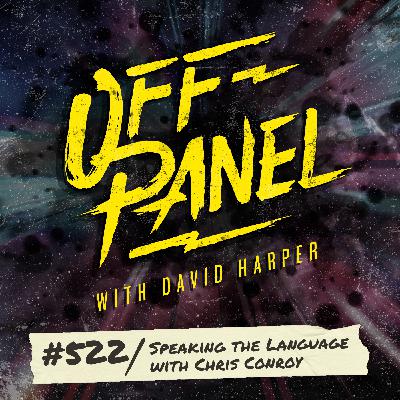
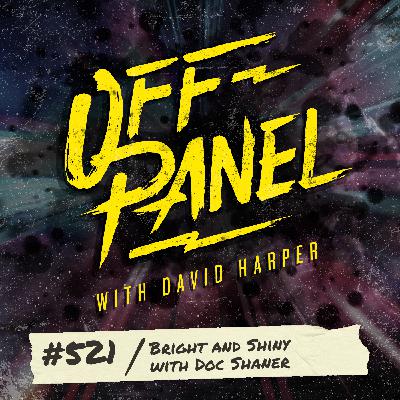

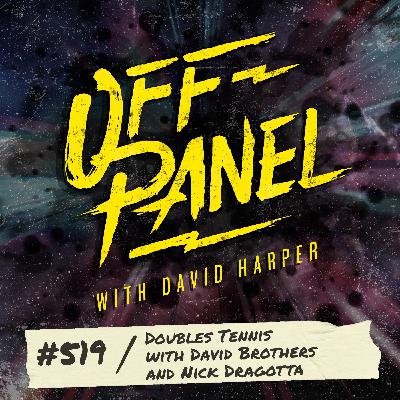
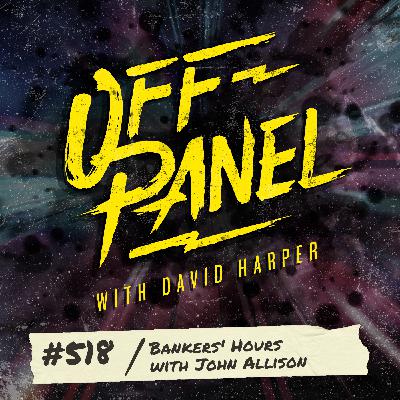
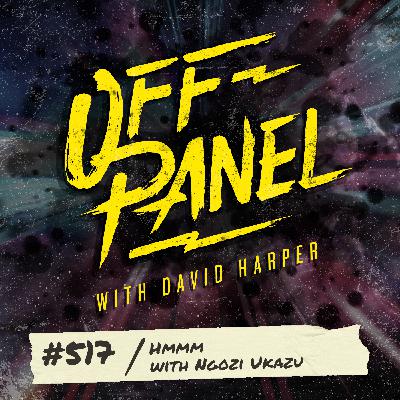
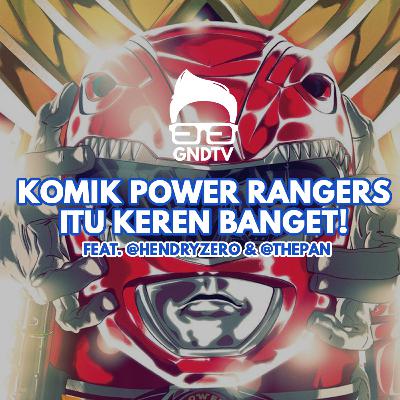
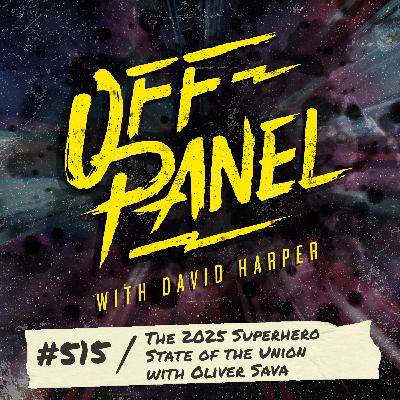
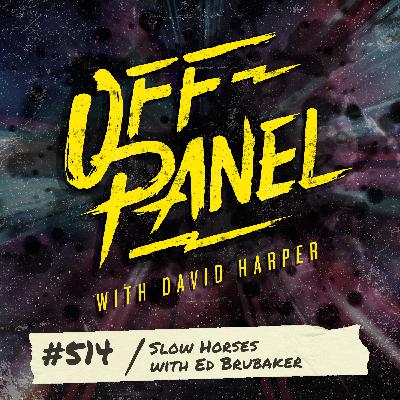
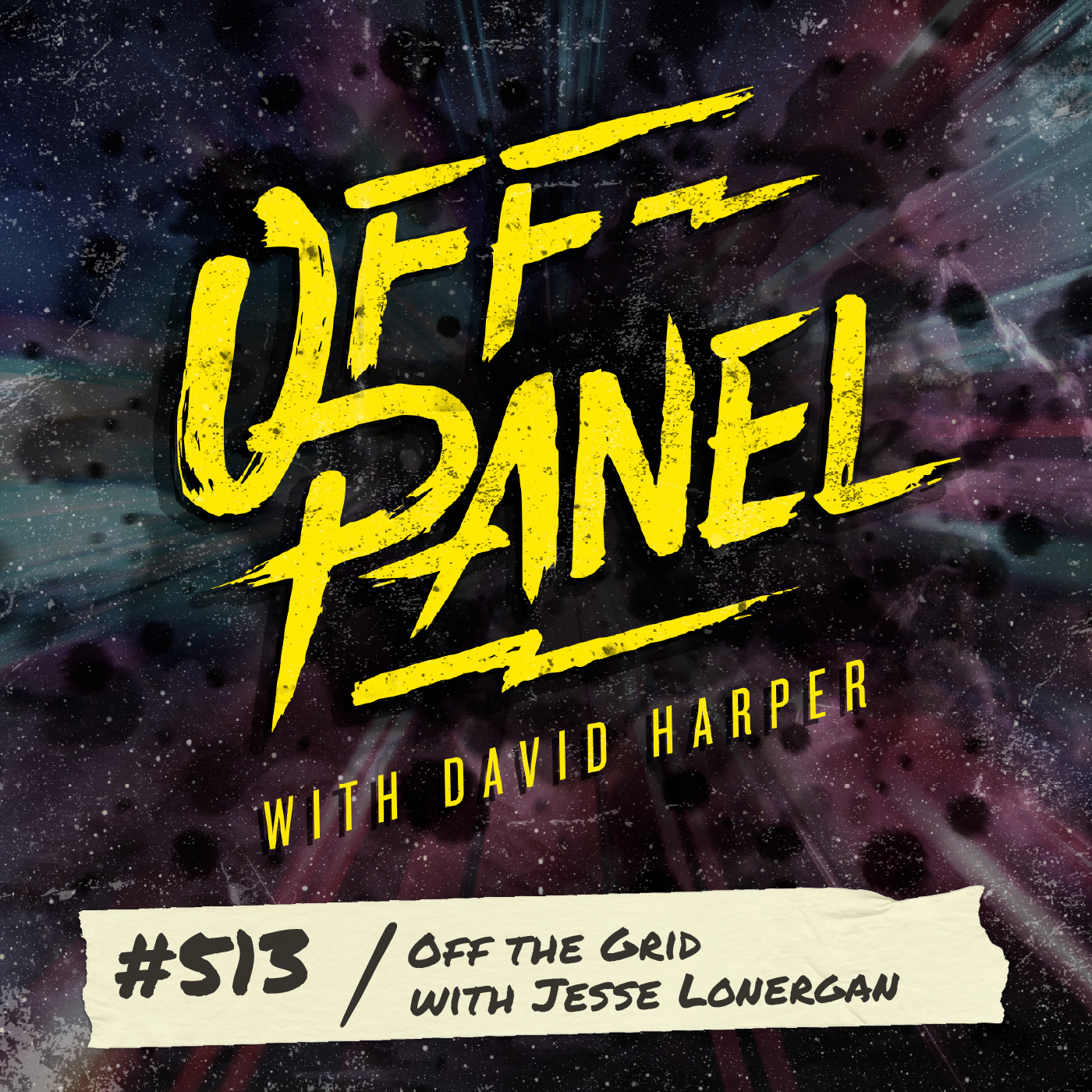
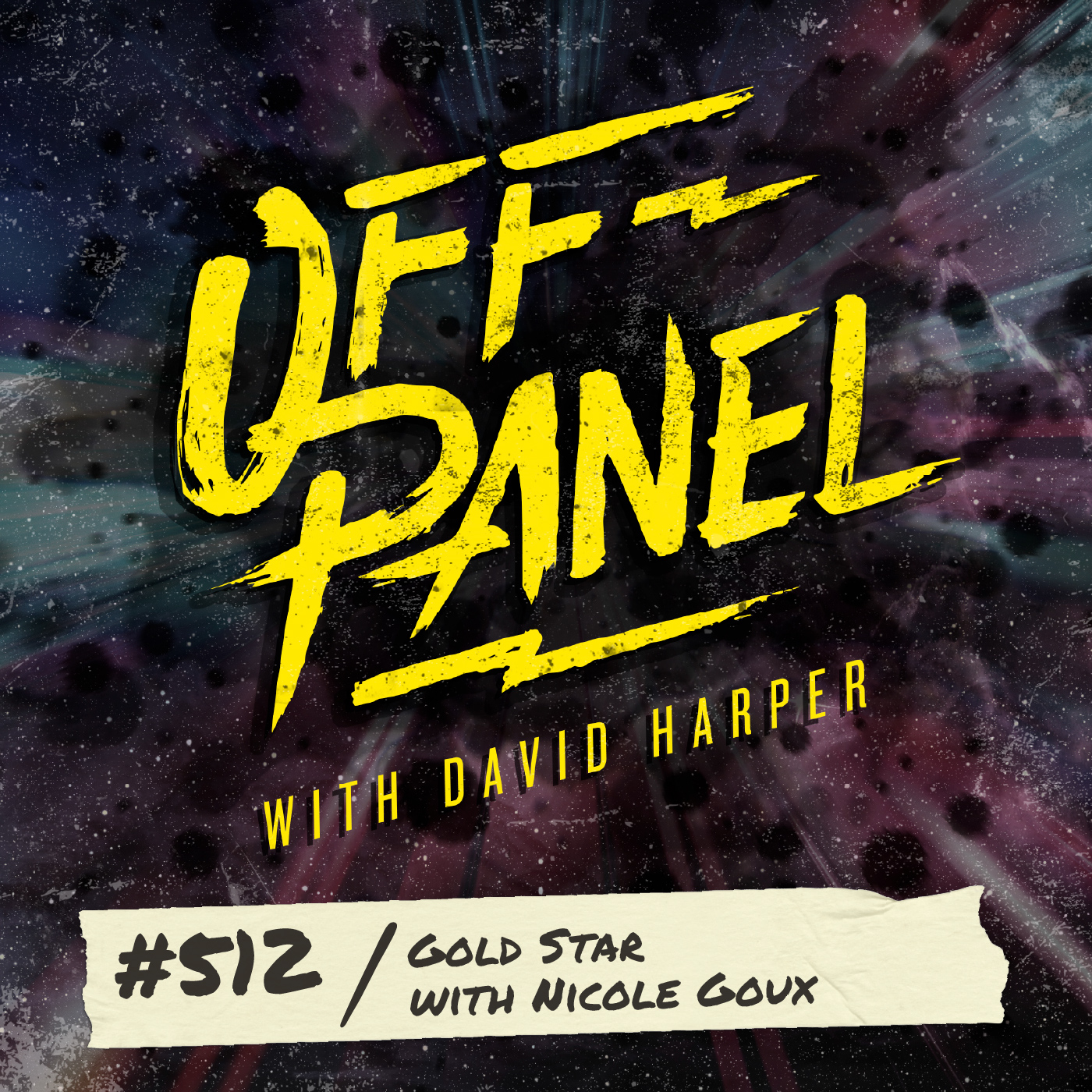
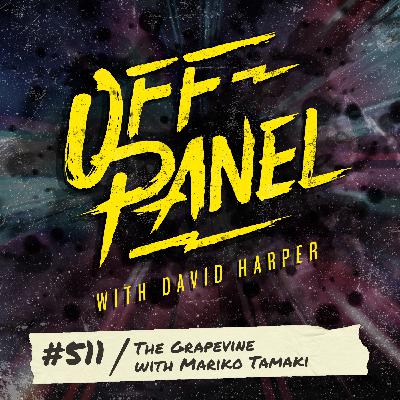
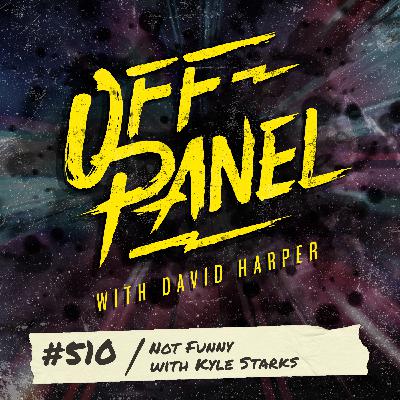
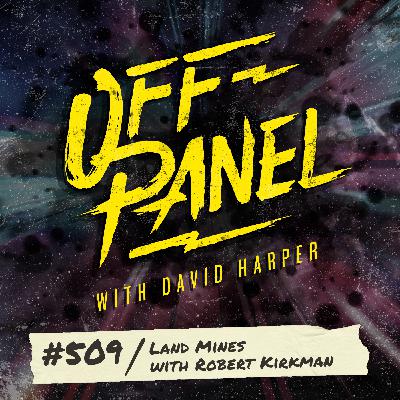
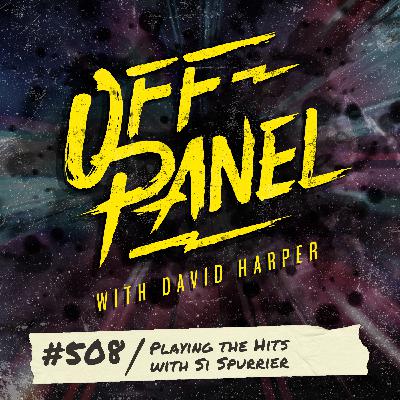
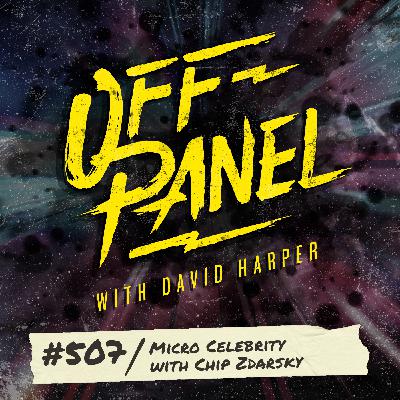
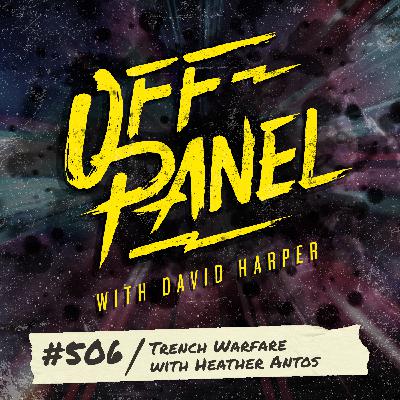
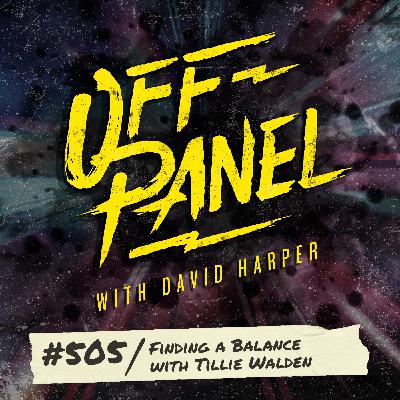
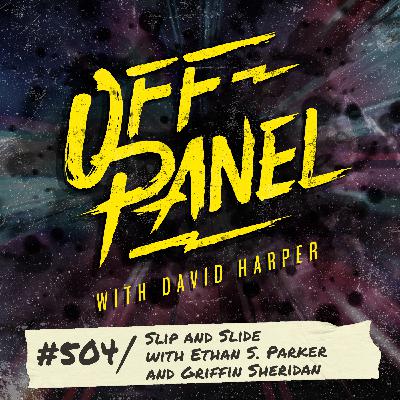



Great content! excellent conversations! love it!